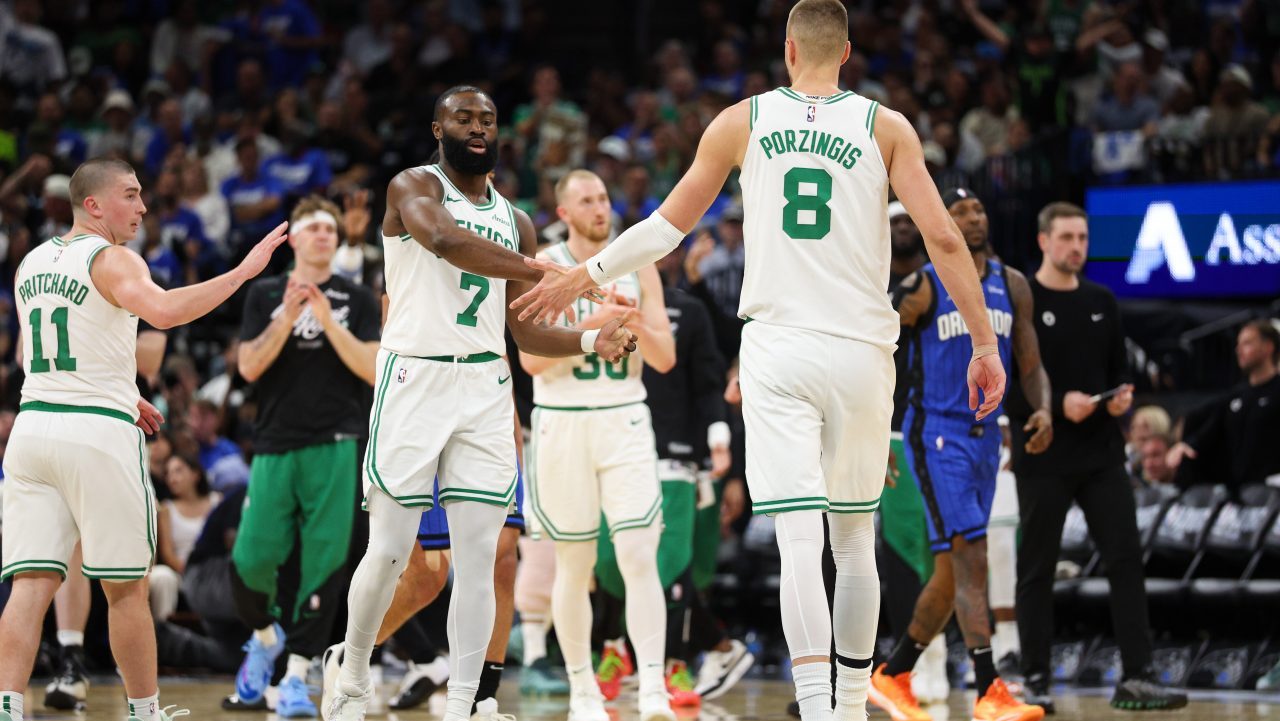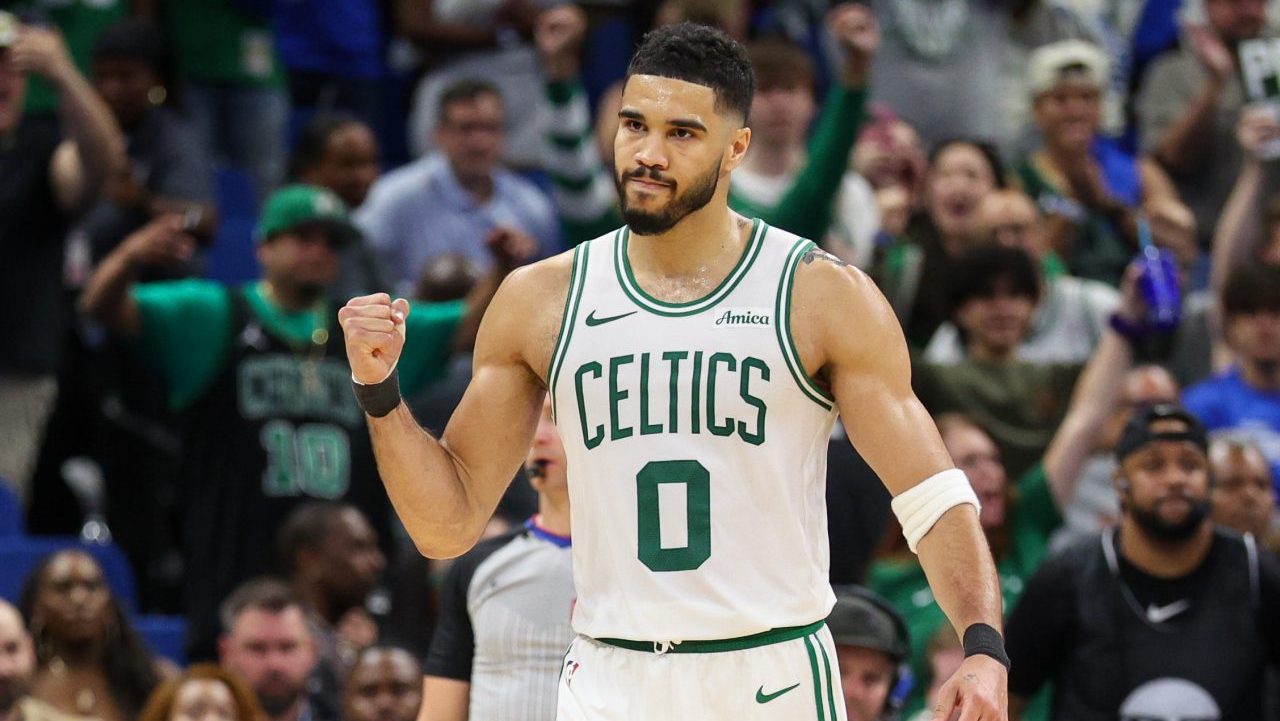Chris Forsberg and Kyle Draper give an end of season performance evaluation of Brad Steven’s ability to get the Celtics to the next level.
An army of cameras inside every NBA arena deliver infinite data we can use to critique any aspect of a player’s performance.
And yet with coaches, about the only metric that exists — and matters -- is wins and losses.
Quantifying a coach’s impact is a rather daunting task. Smart teams can mine data for hints about, say, the success of after-timeout plays or performance based on various substitution patterns. But, ultimately, a coach is graded on the success of the team relative to expectations.
With our All Access Daily newsletter, stay in the game with the latest updates on your beloved Boston sports teams!
It’s a bottom-line business.
It’s the reason that Doc Rivers can finish with the second-best record in a rugged Western Conference and lose his job after failing to meet lofty postseason goals.
It’s why Celtics coach Brad Stevens finds himself under the microscope in the aftermath of Boston bowing out in the Eastern Conference finals, despite the abundance of positives that occurred during the 2019-20 season.
Forsberg: Ainge addresses Kemba's health, goals for offseason
Boston Celtics
Find the latest Boston Celtics news, highlights, analysis and more with NBC Sports Boston.
Recency bias screams to castigate Stevens because the Celtics lost to a lower seed in the East finals, the same stage where Boston’s season has ended in three of the past four years. The suggestion is that Stevens has not been able to get his team over a hump despite multiple opportunities.
But then you back out to the 10,000-foot view and examine the season as a whole. This is essentially the third iteration of a Celtics team that Stevens has delivered to the East finals. After watching Kyrie Irving and Al Horford walk away last summer, Stevens was tasked with rebuilding his entire game plan around another new point guard, a low-budget frontcourt featuring a center-by-committee approach, and a bench swimming with rookies.
All this in a season with perpetual injuries to Boston’s core talent. The Celtics still boasted the fourth-best offense, the fourth-best defense, and the second-best net rating (tied with Rivers’ Clippers) among all NBA teams this season. What’s more, the development of the team's youngest players positioned the team for long-term success.
That's all to say the beauty is in the eye of the beholder when it comes to evaluating the coach. Some can’t look past the fact that the Celtics missed a golden opportunity in the East finals and prefer to highlight some of Stevens’ questionable postseason decisions. Others examine Boston’s playoff exit and conclude that the team’s failings run deeper than just the coach.
Here’s where we ultimately landed while digesting the Celtics’ season as a whole: Stevens had imperfect moments during Boston’s playoff run, but those who suggest the Celtics cannot win a title with Stevens at the helm seem to be prisoners of the moment.
Let’s start with the negatives, though. Unlike postseasons of the past, this year’s playoff run lacked a signature Stevens moment. Our minds rewind to the 2018 conference semifinals against Philadelphia and Stevens' late-game ATOs that often dragged Joel Embiid away from the basket and helped Boston upend the Sixers in five games.
It was Nick Nurse and the Raptors who produced that sort of vintage moment during Game 3 of the Eastern Conference semifinals when Kyle Lowry’s crosscourt pass found OG Anunoby for a game-winning 3-pointer. Stevens' decisions, including one to deploy 7-foot-5 rookie Tacko Fall to defend the inbound with only 0.5 seconds to play, was scrutinized after a miscommunication allowed Anunoby the space to get off the winner.
That loss forced Boston to expend a whole bunch of extra energy in what became a seven-game series. It’s fair to wonder if that, combined with the Celtics’ health woes, complicated matters in the East finals.
More concerning from this vantage point was how Stevens’ team couldn’t catch itself when things went sideways in the playoffs. Boston routinely fumbled away double-digit leads then wilted in crunch time.
Maybe that’s simply a growing process for a younger team, but Stevens struggled to stop the snowball effect. While his philosophy has long been to let his players grind through rough patches, it’s fair to wonder if he could have been quicker with timeouts that would also allow him to draw up a steadying offensive play for his team.
It’s also hard to put Boston’s struggles fully on Stevens when his team turned the ball over 19 times in Game 1 against Miami and often couldn’t get out of its own way during the series. We all saw the locker room clips of Stevens’ imploring his players to attack the basket before games and yet his team’s desire to do such waned from one game to the next.
Maybe Stevens could have been a bit more aggressive with challenges. Maybe he could have held players more accountable whenever defensive intensity dipped or bad shots were taken.
Celtics Talk Podcast: Breaking down Danny Ainge's end-of-season comments & what's ahead for Celtics | Listen & subscribe | Watch on YouTube
But Stevens had his positive moments, too. A locker room flareup after Game 2 of the East finals could have unraveled the Celtics. Stevens huddled his players in the aftermath for some late-night meetings and Boston responded with a wire-to-wire win in a must-have Game 3. Stevens pushed the right buttons in Game 5, deploying Enes Kanter for a season-saving energy boost in the first half when his team was flat.
Alas, that big-man rotation also gave Stevens’ troubles. He didn’t have full trust in Robert Williams and probably didn’t lean on Grant Williams enough in the Miami series. Ultimately, if the Celtics had been at full health, maybe Stevens wouldn’t have had to throw so many darts with his bigs. If Gordon Hayward’s ankle was healthy enough to play big minutes, and if Walker wasn’t hindered by his knee, maybe the Celtics simply go small more often.
Stevens acknowledged during a call this week to 98.5 The Sports Hub’s "Zolak & Bertrand" show that he had been critical in his self-evaluation.
"There was a lot to improve upon in that series as a team,” said Stevens. "I certainly go back and look at all the different games and especially the losses, especially the ones that went down the wire and say, ‘What could I have done different from a strategy standpoint, tactic standpoint, substitution pattern, whatever the case may be?’”
For now, the scouting report will continue to suggest that Stevens is better at lifting up lesser talent than thriving with a championship-caliber roster. Expectations are always particularly lofty for a team with 17 championship banners and, short of obtaining another one, it will be hard for Stevens to satisfy much of the fan base.
Stevens needs to learn from his own missteps in these playoffs. Expectations are not going anywhere. Thanks to Boston’s runs in recent years, it feels like it’s NBA Finals or bust with Stevens. Fair or not, that’s the expectation that he now faces based on the success he’s produced to this point.


